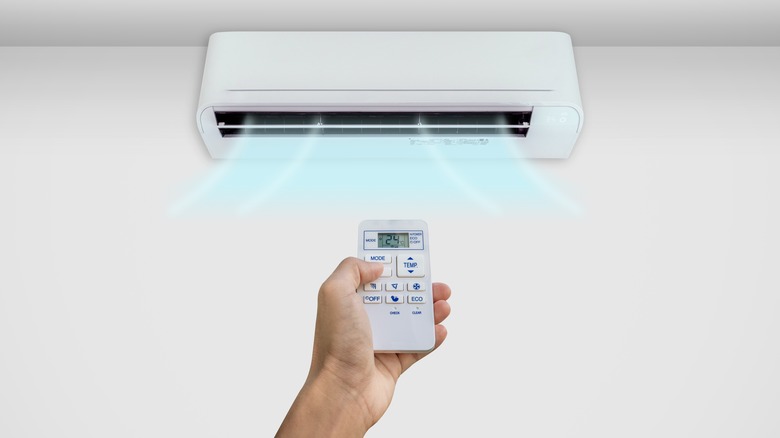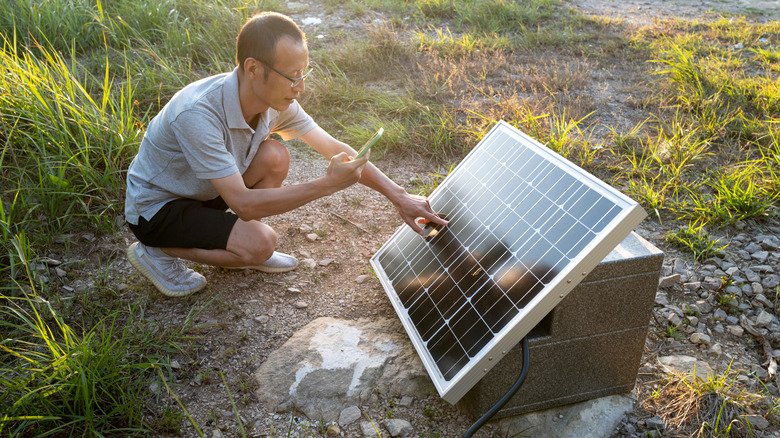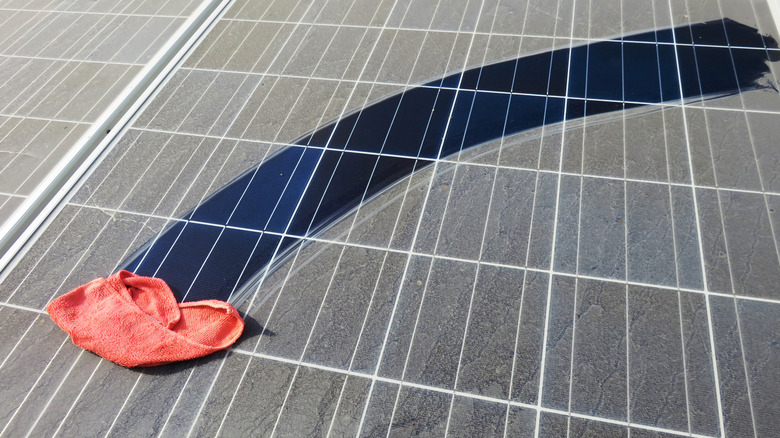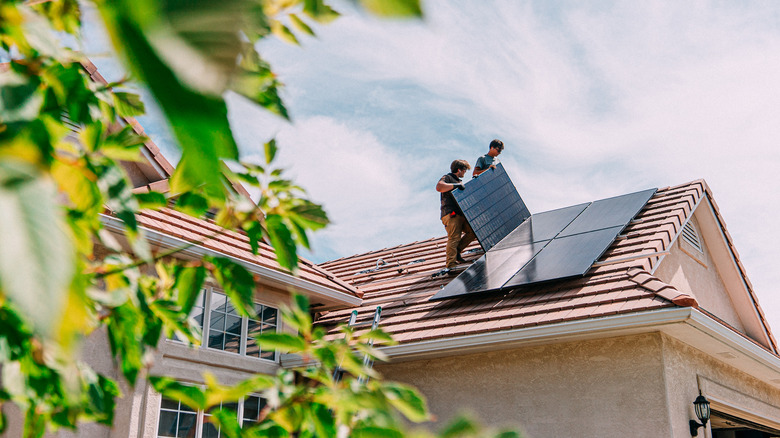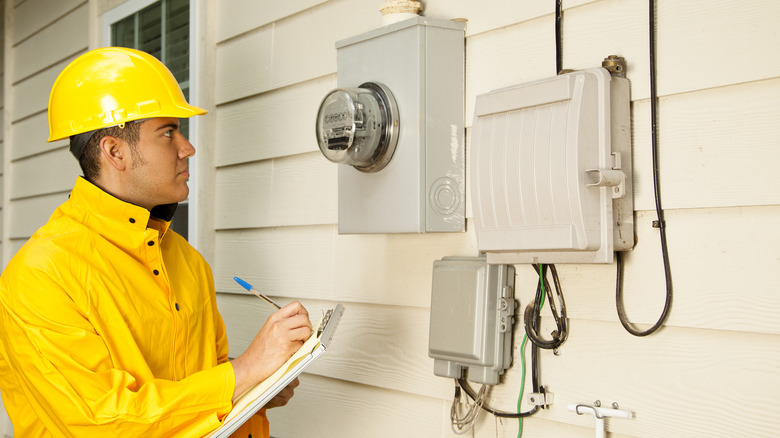5 Reasons Why You're Getting High Electric Bills With Solar Panels
A big part of why many homeowners get solar panels installed on their properties is to offset high electricity bills, especially during the summer months when energy usage rises sharply. While many types of solar panels can cover up to 100% of the electricity consumption needs of a household, you might still have to rely on the energy provided by your utility company to meet the excess demand. In the best-case scenario, the utility bills you receive as a result of this usage should be minimal.
However, from time to time, you might notice a spike in your electricity bills, even with your solar panels working. There are numerous reasons for this, from increased energy usage on your part to a malfunction in the system. There can also be external factors that are just beyond your control. That said, the sooner you look into what's causing the spike and address the issue, the sooner you can bring down your utility bills and continue enjoying the benefits of your solar system installation. Below, we'll take a look at five of the most common reasons for high electricity bills, despite having a solar system.
Changing energy consumption patterns
Often, after homeowners install solar panels on their property, they stop keeping track of their energy consumption. Whether it's plugging in and using appliances and lights that are not needed or cranking up the air conditioner, many of these habits can, unsurprisingly, cause your electricity needs to rise.
Even if you've been careful about your energy usage, changes in your living situation or the addition of new appliances to your household might be what's causing a spike in your electricity bill. For instance, guests visiting you during the holidays naturally add to energy needs. The same goes for if you or another resident shift to a remote work situation. Additionally, if you don't like the heat, staying indoors for more hours can significantly increase your energy consumption too.
While some of these changes are temporary, it's a good idea to take a look at your energy consumption over a few weeks and try to spot new habits or inefficiencies in your appliances that might be running up your electricity usage. Taking steps to be more mindful about your energy consumption and getting appliances, like your air conditioner and refrigerator, serviced can help keep your utility bills under control.
Weather-related factors
The weather has a big impact on how well your solar panels function. If you've been getting a lot of rain, or it's been getting darker earlier in the day, your solar system's efficiency will naturally take a dip. Cool, sunny days are what's ideal for your solar panels to function at their peak capacity. On the other hand, intense heat, cloudy skies, snow, and even excess humidity can reduce a solar system's efficiency. If the weather conditions haven't been conducive for a while, you may be relying more on traditional sources to meet your energy consumption demands. This, in turn, can cause an increase in your electricity bills.
The best way to keep weather-related factors from affecting your solar system's energy production capacity is to install the panels in a sunny location. However, if your roof isn't positioned in a way that gets maximum sun exposure, consider using portable solar panels that can be moved around your property to capture more sunlight. Additionally, you might want to invest in a few energy-saving lighting options, so you're not using as much electricity.
Malfunctioning or dirty solar panels
Solar panels usually have a pretty solid build quality, given that they're expected to work outdoors and hold up to the elements. However, it's possible for the panels to malfunction and even potentially break due to a number of reasons, from debris falling on the surface to the effects of corrosion.
If your electricity bills have recently risen while your electricity consumption has remained the same, it's worth checking if your panels are working as they should. If you don't see any obvious signs of damage on the panels, check if the breaker switches have tripped. If all those seem fine, check whether your solar inverter is functioning normally. Typically, a green light means it's working fine, whereas a red, yellow, or blinking light indicates an issue. Your manual should have more information about how to identify potential issues. Since the inverter is an important part of a solar system, addressing any problems related to the inverter will help.
Another thing you should do is check if the solar panels are clean. MIT News reported that the accumulation of dust on solar panels can reduce the output of the panels by up to 30% in just one month, which means dirty panels might just be what's causing your electricity bills to rise. The good news is that cleaning solar panels is fairly easy and should result in better output.
Size of your solar system
How many solar panels you need to power your home will depend on your energy needs. If your current solar system is too small for your needs and is not offsetting 100% of your consumption, your electricity bills might fluctuate. In this case, the easiest thing to do is add more solar panels to the roof. This way, your consumption will be met by the increased output provided by the new panels.
If your roof cannot accommodate more panels, consider purchasing portable solar panels. Alternatively, you might want to purchase a solar battery. Keep in mind that your solar panels generate maximum energy when the sun is the brightest, and this usually happens between 9 a.m. and 3 p.m. for east-facing panels, and later in the day for west-facing panels. If you're not using enough energy during these hours and are using more energy in the evenings or at night, a solar battery might come in handy since it can store some of the surplus energy that is generated during the peak production hours. This can help you use solar energy continuously throughout the day.
Incorrect meter reading
If none of the above-mentioned reasons explain why your energy bills are spiking, it's worth checking if the culprit is a faulty meter that's causing a billing inaccuracy. Billing inaccuracies can have a number of causes, but if you've already determined that none of your appliances are malfunctioning and using up more energy, you'll want to check if the utility meter is working. If you just moved into your home, it's also possible that the meter wasn't installed or activated properly.
If you suspect that your meter is malfunctioning, call your utility company or an electrician to inspect the meter. A professional will be able to test the meter and identify if it's working normally or is malfunctioning and causing incorrect meter readings. If it's faulty or broken, there's a good chance you'll receive a refund from your energy company for any overbilling that the meter caused, and this should address the spike in your electricity bills.

